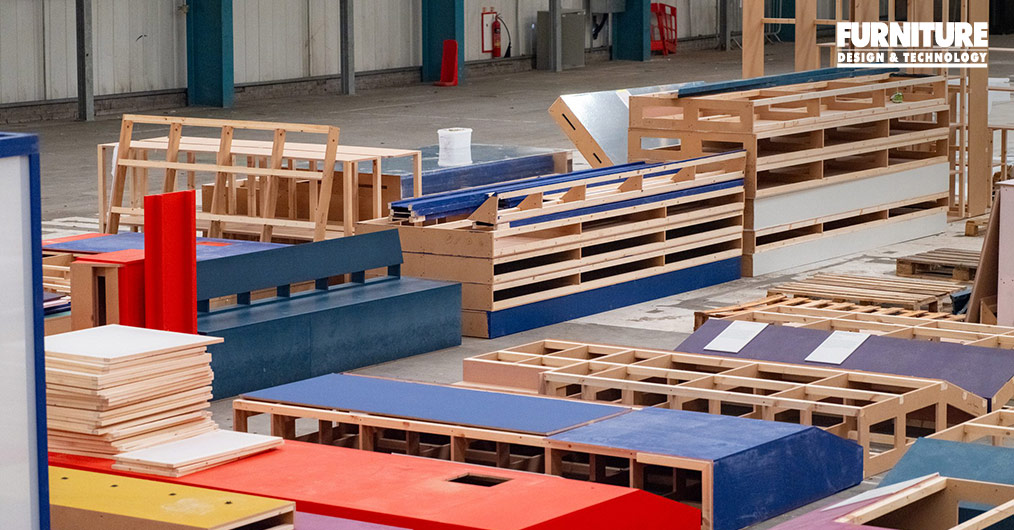
The Dundee Design Festival has unveiled an ambitious sustainability strategy, aiming to become the world’s most sustainable design event. The festival, Scotland’s largest design event, will reportedly incorporate clean energy, electric transport and exclusive use of tinned beverages as part of its green initiatives. However, the cornerstone of its sustainability efforts lies in its approach to materials and circularity. Know more about it on FURNITURE DESIGN AND TECHNOLOGY (FDT).
Scheduled for September at the Michelin Scotland Innovation Parc, the festival will limit new material use to a maximum of 30 per cent for constructing the entire event site. This includes stands for over 100 designers and installations by renowned artists such as Donna Wilson, Timorous Beasties, Gabriella Marcella and AdesignStorie. Materials will be sourced from previous exhibitions at the V&A Dundee, Edinburgh’s Bard gallery, and local suppliers, ensuring that everything used can have a further life after the event.
The sustainability vision is spearheaded by new creative director Stacey Hunter, founder of the curatorial studio Local Heroes, known for exhibitions like 2018’s Made in Glasgow. To achieve this, the festival has access to materials stored on-site at the Michelin Scotland Innovation Parc from previous exhibitions. Exhibitors can select materials, which are marked and reserved using a simple system of Post-It notes. Additionally, Hunter has curated a materials palette consisting entirely of items that can be borrowed or reused, including breeze blocks, Heras fencing, scrap timber and bricks.
The design challenge is to create an engaging visitor experience without excessive use of new materials. Collaborating with designer Louise Forbes and lighting designer Emma Jones, Hunter plans to use lighting and minimal structures to define the space creatively, enhancing the factory-like, 3,000sqm venue without constructing numerous walls and barriers. Furthering its sustainability goals, the festival has partnered with electric bus company Ember to provide zero-emissions transport for visitors from Edinburgh, Dundee and Glasgow. These buses will recharge at the Innovation Parc, powered entirely by renewable energy from on-site wind turbines. Additionally, the festival will exclusively serve canned beverages, promoting the recyclability and lightweight nature of aluminium cans, and is exploring the use of compostable toilets.
The festival’s practical approach to sustainability focuses on using materials that are already available, renewable, or recyclable without delving into complex data on carbon emissions or toxicity.
Image credit: Grant Anderson
Furniture Design India and the magazine FURNITURE DESIGN & TECHNOLOGY (FDT magazine) are from the trusted 22-year-old media house of SURFACES REPORTER and PLY REPORTER.
FDT is a B2B monthly bilingual magazine from India that shares the pulse of the furniture business in India and connects the manufacturers, OEMS, product designers, architects, showrooms, designers and dealers.
Read More© 2026 Furniture Design and Technologies.. All Rights Reserved. Developed by eyeQ Advertising